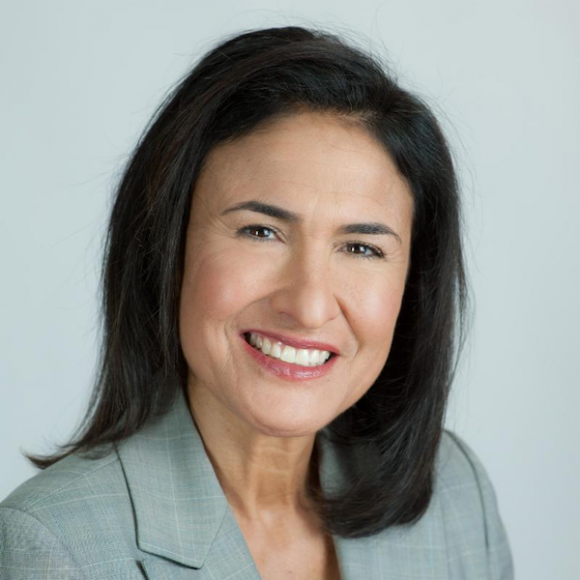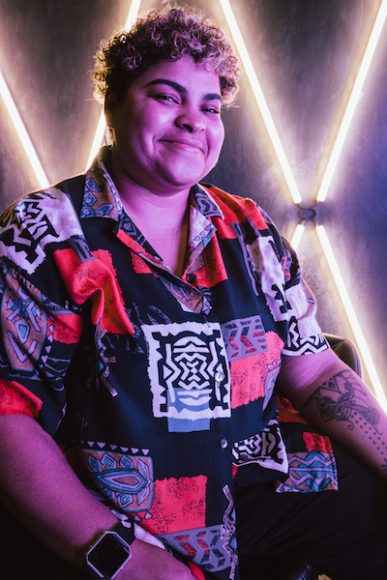We begin our conversation with Maria L. Imperial and Ariana L. Quiñones of the YWCA of White Plains & Central Westchester with a discussion of pronouns. Imperial’s are “she” and “her.” Quiñones’ are “they” and “them.” In other words, if we were quoting the two in this article and didn’t want to use the last names over and over, we would say of Imperial, “she says.” But we would say of Quiñones, “they say.”
“Language is powerful,” says Imperial, the Y’s CEO. To which we would add, language both creates and reflects society, constantly changing with it. Imperial’s and Quiñones’ use of specific pronouns not only says something about individual identity. It also mirrors a gender-neutral organization that in seeking empowerment for women and racial justice strives to expand its history and provide peace, freedom and dignity for all.
“Most people think we’re a pool or a gym,” Imperial says. And to a certain extent the Y is, continuing to offer fitness activities online during the pandemic. Founded in 1929 by The Woman’s Club of White Plains to provide a safe, secure space and lunch for working women as well as programs for these women and girls, the YWCA of White Plains & Central Westchester added racial justice to its platform in 1947 under the leadership of Dorothy Height, Imperial says. The year represented a seismic shift in the fight for American racial equality: Jackie Robinson broke the color barrier in Major League Baseball, playing second base for the Brooklyn Dodgers. (A year later, President Harry S. Truman desegregated the armed forces.)
“In order for all women to be free, you have to address racism,” Imperial says.
The Y strives to mitigate inequality in a number of ways. It is the only provider of supportive housing for low-income women in Westchester County and the largest in New York state — “supportive” referring to services such as case management, benefits and food assistance for 193 women. It operates Sisters’ Village, featuring a clothing closet, food pantry and a computer lab for the underserved. (Clothing donations are on hold right now, because of the coronavirus restrictions.) The Y has created an innovative new program called E4 (education, employment, economic mobility and empowerment) to provide mentoring, help with résumé writing and information on finding jobs.
There’s the Y Leadership Program for female high school and college students; the Reading to End Racism book club, which in October discussed Ibram X. Kendi’s “How To Be An Anti-Racist”; and Courageous Conversations’ Common Ground series on how to build an anti-racist community, a partnership with the League of Women Voters of White Plains and the White Plains Public Library.
“Racial justice bleeds through all we do,” says Quiñones, the Y’s next gen and racial justice coordinator.
These are just some of the Y’s programs and services, which have been challenged in the pandemic. The Y saw its annual operating budget slashed 25% from $8 million to $6 million as many programs shifted to online and fees dried up. (Fees from programs and membership account for 70% of the budget, Imperial says.) Signature events like April’s consciousness-raising Stand Against Racism, which Quiñones says the Y was ramping up for in March as the pandemic struck New York with a vengeance, had to be retooled quickly for online participation.
“It takes time to observe what is working in the virtual world and what is not,” Quiñones says.
Throughout the pandemic, the women’s residence has continued to operate, as has childcare. Indeed, throughout the worst of the virus here, the Y had been the county host for essential workers needing childcare, converting the fitness center to a Learning Lab to continue helping White Plains’ youngsters kindergarten through eighth grade with remote education. The lab also provides these kids with breakfast and lunch.
All of this, Imperial adds, is expensive, particularly when you add PPE for staff. (The Y has 220 staffers, 180 of whom have been furloughed, and 50 volunteers. Imperial says she is slowly bringing the furloughed staffers back.)
Still, there is much to be thankful for — the Y’s first $100,000 gift and the forthcoming Center for Racial Equity, which will offer workshops, conversations, resource materials and leadership development.
Training sessions start in January, underscoring the Y’s mission to educate and teach others to do so as well.
For more, visit ywcawpcw.org.






